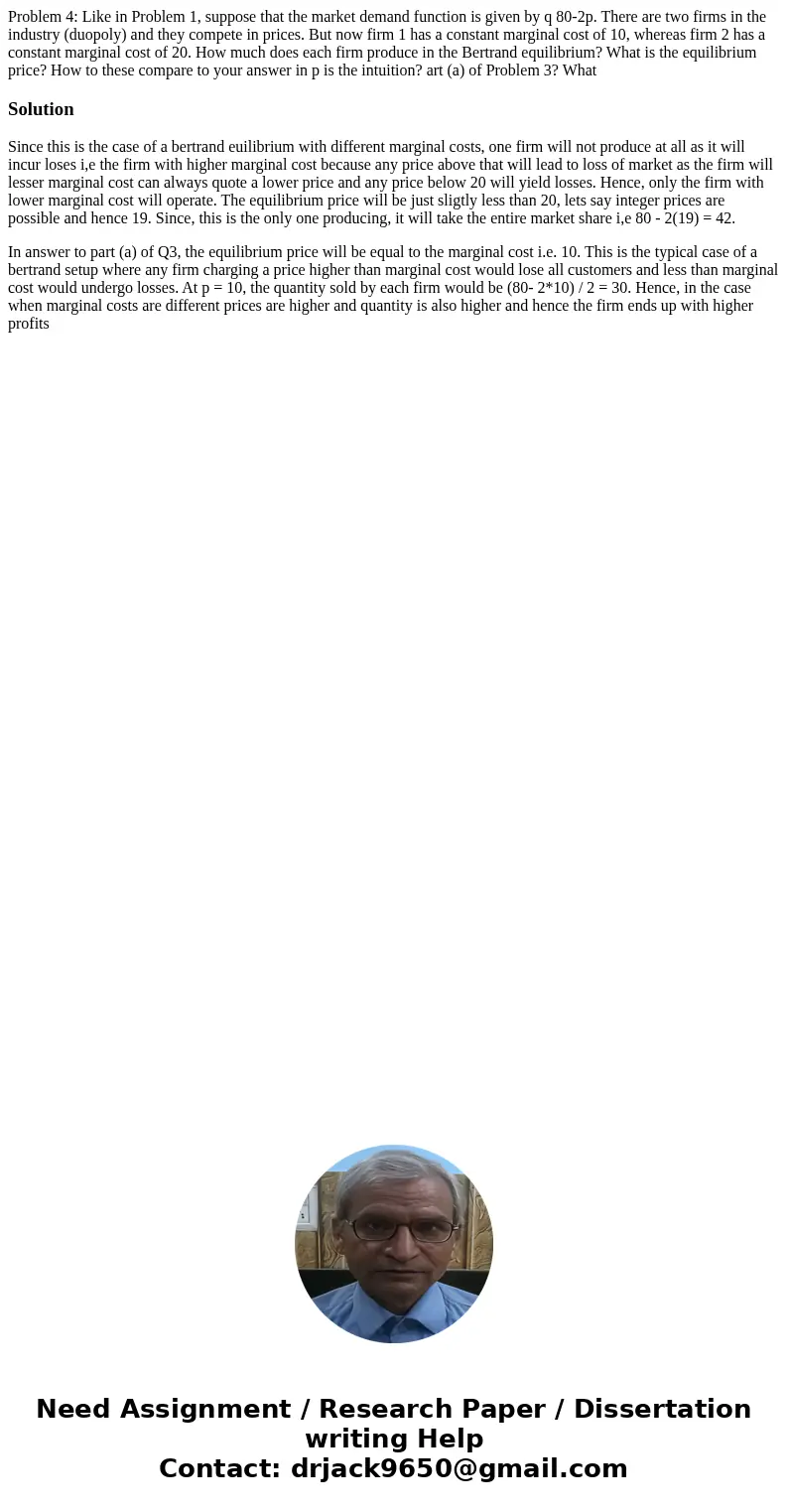Problem 4 Like in Problem 1 suppose that the market demand f
Solution
Since this is the case of a bertrand euilibrium with different marginal costs, one firm will not produce at all as it will incur loses i,e the firm with higher marginal cost because any price above that will lead to loss of market as the firm will lesser marginal cost can always quote a lower price and any price below 20 will yield losses. Hence, only the firm with lower marginal cost will operate. The equilibrium price will be just sligtly less than 20, lets say integer prices are possible and hence 19. Since, this is the only one producing, it will take the entire market share i,e 80 - 2(19) = 42.
In answer to part (a) of Q3, the equilibrium price will be equal to the marginal cost i.e. 10. This is the typical case of a bertrand setup where any firm charging a price higher than marginal cost would lose all customers and less than marginal cost would undergo losses. At p = 10, the quantity sold by each firm would be (80- 2*10) / 2 = 30. Hence, in the case when marginal costs are different prices are higher and quantity is also higher and hence the firm ends up with higher profits

 Homework Sourse
Homework Sourse